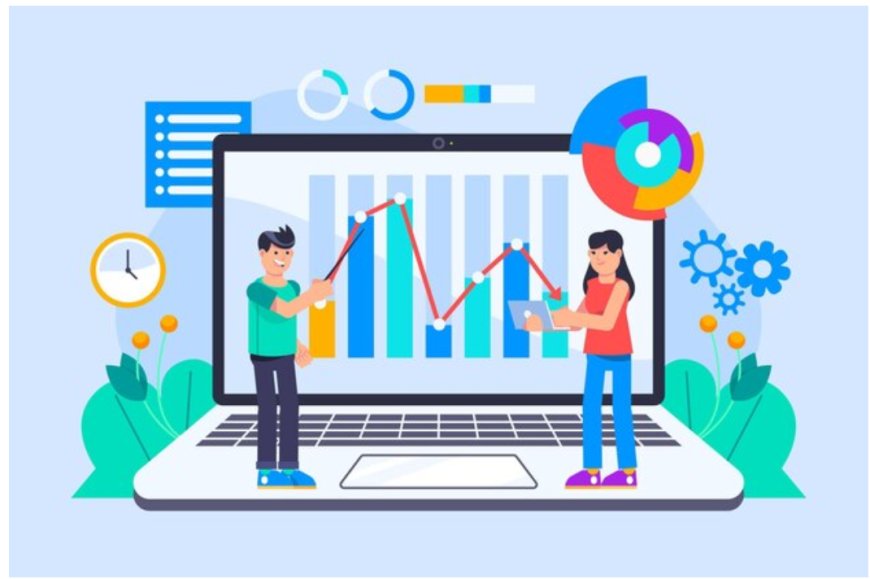Measuring Social Impact with Data Analytics
Unlock the power of data analytics to measure social impact. Explore how data-driven insights can assess the effectiveness of your social initiatives and drive positive change.

Data analytics goes beyond the confines of business and technology, transforming our approach to social matters and how we assess their influence. Evaluating Social Impact through Data Analytics transcends the conventional methods of measuring societal progress, offering a compelling frontier where the amalgamation of data and social responsibility empowers us to achieve profound insights, make wiser choices, and, most importantly, drive positive societal change.
Assessing the Landscape of Social Impact Measurement
Assessing the Landscape of Social Impact Measurement entails examining the existing methodologies and practices used to evaluate the effects of social programs, initiatives, and interventions. In this complex domain, traditional methods have primarily relied on qualitative assessments, surveys, and subjective data, often lacking the rigor and precision necessary to gauge true impact. These methods may fall short in addressing the multifaceted challenges and needs of a rapidly evolving society. Consequently, the need for more advanced approaches has become increasingly evident.
The landscape of social impact measurement is poised for transformation, with data analytics and technology playing a pivotal role. These advanced techniques offer the potential to harness big data, real-time insights, and predictive analytics, enabling organizations to better understand, monitor, and enhance their societal contributions. This shift towards data-driven impact measurement not only improves accuracy but also enhances scalability and timeliness, ensuring that social interventions can adapt and respond to changing circumstances effectively. As we delve deeper into this topic, we'll explore how data analytics is redefining the way we evaluate and enhance our social impact efforts.
Challenges in Measuring Social Impact
Measuring social impact is a complex and multifaceted endeavor, and it comes with a set of significant challenges that organizations, researchers, and policymakers must grapple with. These challenges primarily revolve around the limitations of traditional measurement methods and the need for more robust and accurate approaches.
One of the key challenges is the overreliance on qualitative and subjective data. Many social impact assessments have historically relied on interviews, surveys, and personal anecdotes. While these methods provide valuable insights, they often lack the quantitative rigor necessary to measure impact comprehensively. Subjective data can be influenced by individual biases, emotions, and perceptions, making it difficult to establish clear, consistent benchmarks for impact assessment.
existing measurement systems may introduce biases and inaccuracies into the assessment process. These biases can stem from factors like sample selection, data collection methods, and even the interpretation of results. For instance, certain groups within a population may be underrepresented in data collection efforts, leading to skewed results that may not accurately reflect the true social impact of an initiative. Additionally, biases can emerge during the analysis phase, as human judgment can introduce unintentional subjectivity into the evaluation process.
Addressing these challenges is essential for achieving a more precise and comprehensive understanding of social impact. Embracing data analytics and leveraging technology can help mitigate the shortcomings of qualitative data while enabling more objective, scalable, and real-time impact assessments. As we delve deeper into these issues, we will explore how data analytics can be a promising solution to many of the complications in measuring social impact, providing a clearer and more accurate picture of the outcomes of social initiatives.
What is the Potential of Data Analytics in Social Impact Measurement
the use of data analytics, a powerful set of techniques and tools for processing and interpreting data, to enhance the way we assess and understand the impact of social initiatives, programs, and interventions. This approach has gained significant traction in recent years due to its ability to provide more accurate, detailed, and real-time insights into the effectiveness of projects aimed at improving society.
Improved Accuracy and Precision: Data analytics can process vast amounts of data, allowing for a more precise and accurate assessment of social impact. This goes beyond traditional qualitative or subjective measures and provides a quantitative basis for decision-making.
Scalability: With data analytics, it's possible to scale up the measurement of social impact, making it feasible to assess large-scale programs and initiatives. This scalability is essential for addressing complex and widespread social issues.
Real-time Insights: Data analytics allows for the collection and analysis of data in real-time or near-real time. This means that organizations can monitor and adapt their interventions as needed, responding more effectively to changing circumstances.
Customization: Data analytics can be tailored to the specific goals and metrics of a social impact initiative. This customization ensures that the assessment aligns with the objectives and outcomes of the program.
Identification of Patterns and Trends: Data analytics can uncover hidden patterns, correlations, and trends within the data that might be missed by traditional methods. This insight can be crucial in identifying what works and what doesn't in social programs.
Cost-Efficiency: While setting up data analytics systems may have upfront costs, they often prove to be cost-effective in the long run by reducing the need for manual data collection and analysis. This can free up resources for the actual social initiatives.
Ethical Considerations: The potential of data analytics also brings up ethical considerations, particularly regarding data privacy and security. It's important to handle data responsibly and protect individuals' privacy while using data analytics for social impact measurement.
Social Impact Measurement with Data Analytics
Social impact measurement with data analytics is a contemporary approach to assessing and quantifying the effects of various social initiatives, programs, and interventions. It leverages the power of data analytics tools and techniques to comprehensively evaluate the positive or negative outcomes of social projects, policies, and practices. This topic represents a significant paradigm shift in how we understand and assess the effectiveness of efforts aimed at improving society, as it moves beyond traditional, often subjective, and qualitative methods of evaluation.
Data Sources: This approach relies on diverse data sources, which can include social media data, surveys, government records, open data sets, and more. These sources offer valuable information that can be analyzed to gain insights into the social impact of various initiatives.
Analytics Tools and Techniques: Data analytics encompasses a wide range of tools and techniques, including machine learning algorithms, natural language processing, predictive modeling, and statistical analysis. These tools can be employed to process and interpret large volumes of data efficiently.
Benefits: Utilizing data analytics for social impact measurement offers several advantages. It enhances accuracy by providing objective and data-driven insights, enables scalability to assess the impact of initiatives on a larger scale, and offers real-time insights, enabling rapid adjustments to strategies based on emerging trends or feedback.
Ethical Considerations: Despite the numerous benefits, ethical considerations are crucial when applying data analytics in the realm of social impact measurement. It's vital to address issues such as data privacy, consent, and transparency to ensure responsible and respectful data usage.
Challenges and Limitations of Data Analytics in Social Impact Measurement
Measuring social impact through data analytics presents both promising opportunities and significant challenges. One of the foremost concerns is data privacy. Analyzing individual and community data raises ethical issues, as ensuring the protection of sensitive information becomes paramount. Striking a balance between collecting sufficient data for meaningful analysis and safeguarding personal privacy is an ongoing struggle.
Data quality is another significant limitation. Inaccurate or incomplete data can lead to flawed assessments of social impact, potentially misleading policy decisions, and resource allocation. Therefore, ensuring data accuracy and reliability is essential.
The digital divide exacerbates these challenges. Not everyone has equal access to the internet or digital devices, leading to disparities in data availability. This limitation may result in an underrepresentation of certain populations, making it difficult to assess their social impact accurately.
Addressing these challenges is crucial for the effective use of data analytics in social impact measurement, as doing so can help ensure ethical and equitable assessments that guide meaningful social change.
The integration of data analytics into social impact measurement represents a significant leap forward in our ability to understand, assess, and improve the outcomes of social initiatives. By harnessing the power of data, we can transcend the limitations of traditional methods and gain more accurate, timely, and scalable insights. However, it's crucial to acknowledge that while data analytics offers immense potential, it is not without challenges, particularly in areas of data privacy, quality, and equitable access. Striking the right balance between harnessing data's potential and ensuring ethical, inclusive practices is the key to maximizing the benefits of this transformative approach.











































